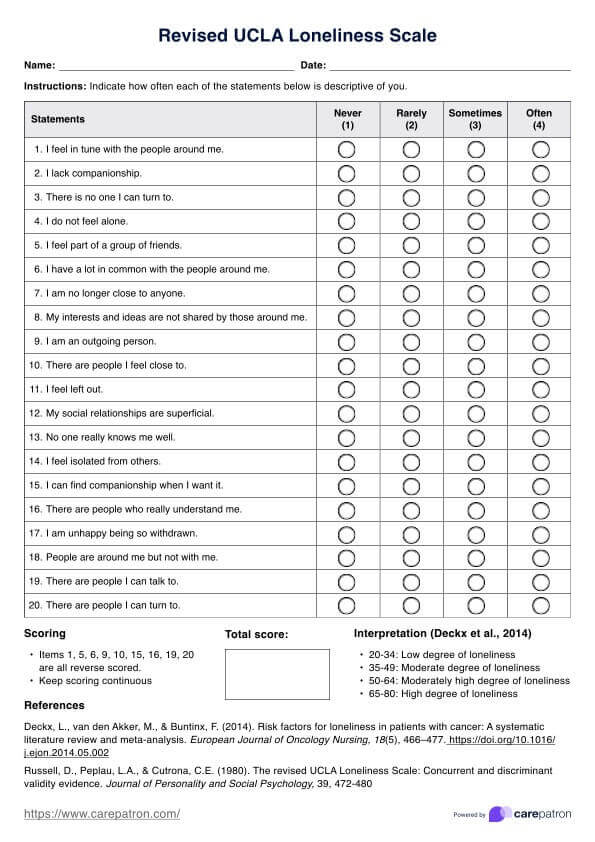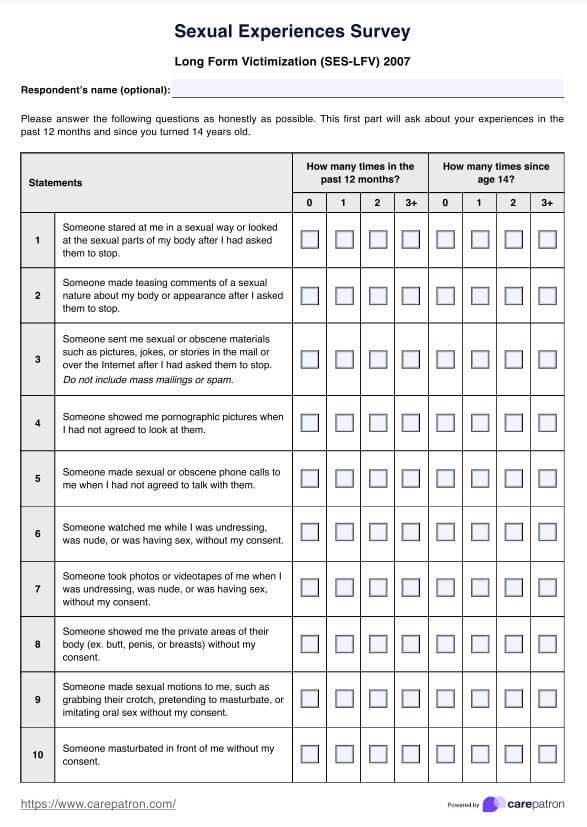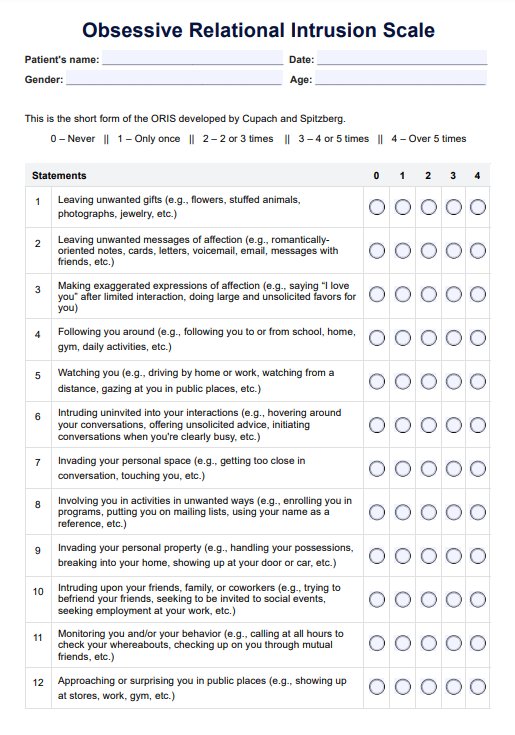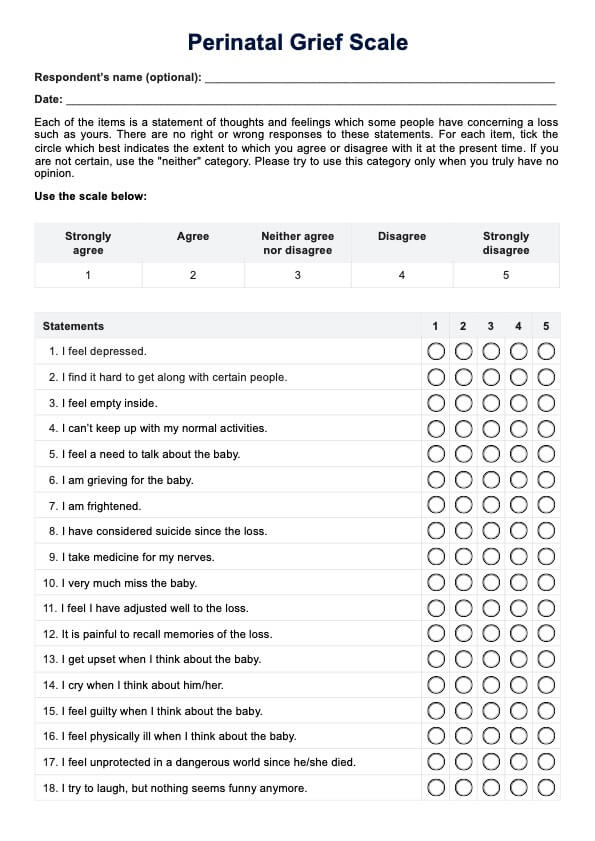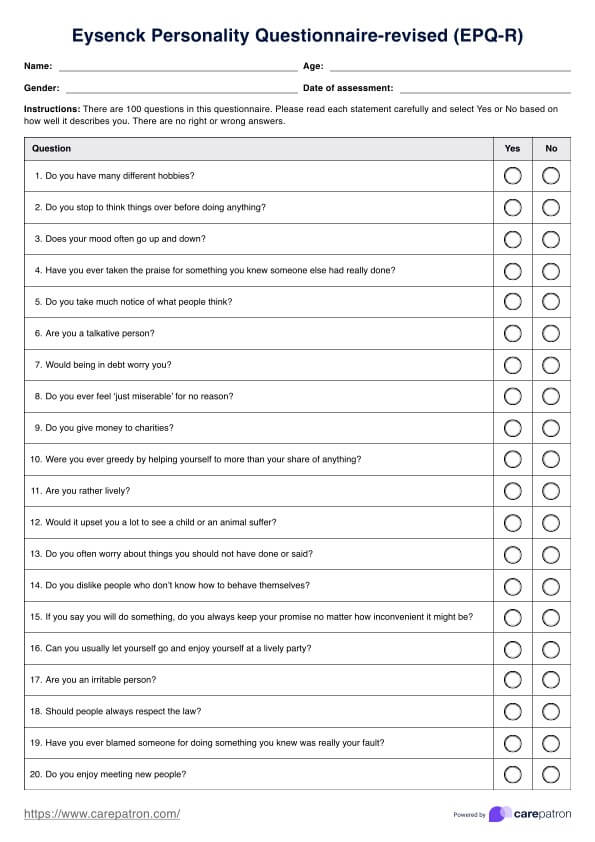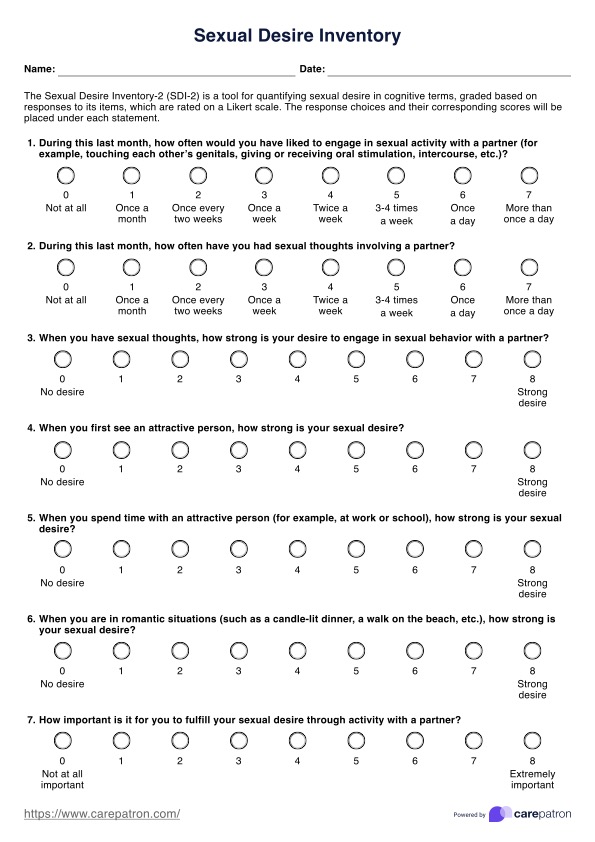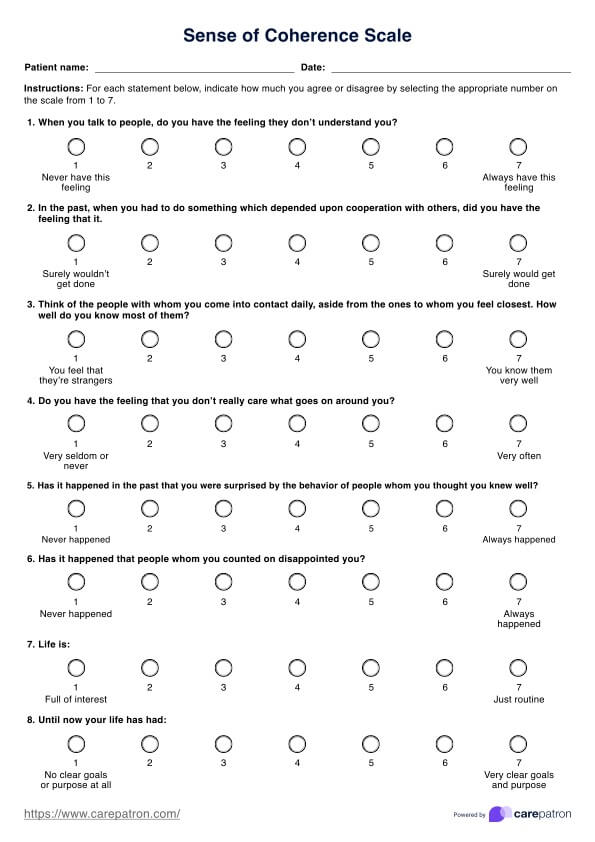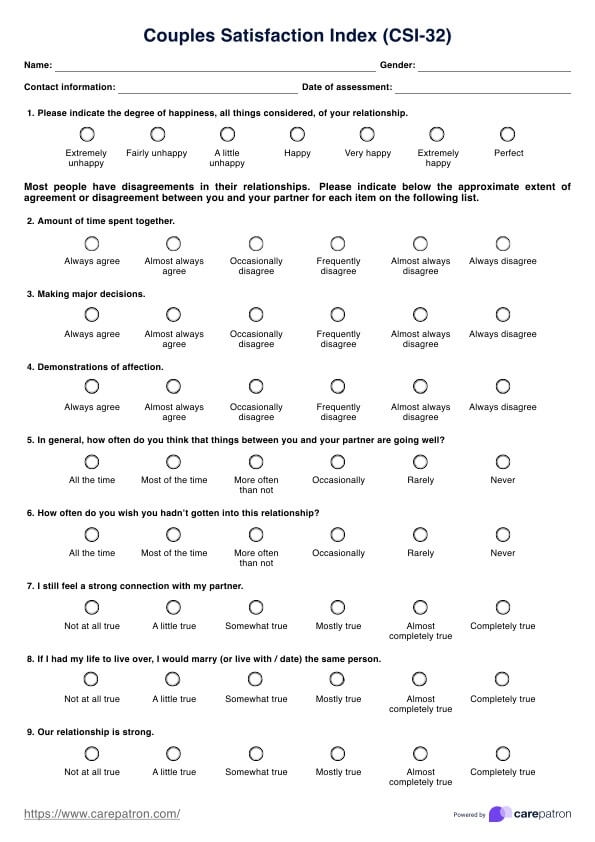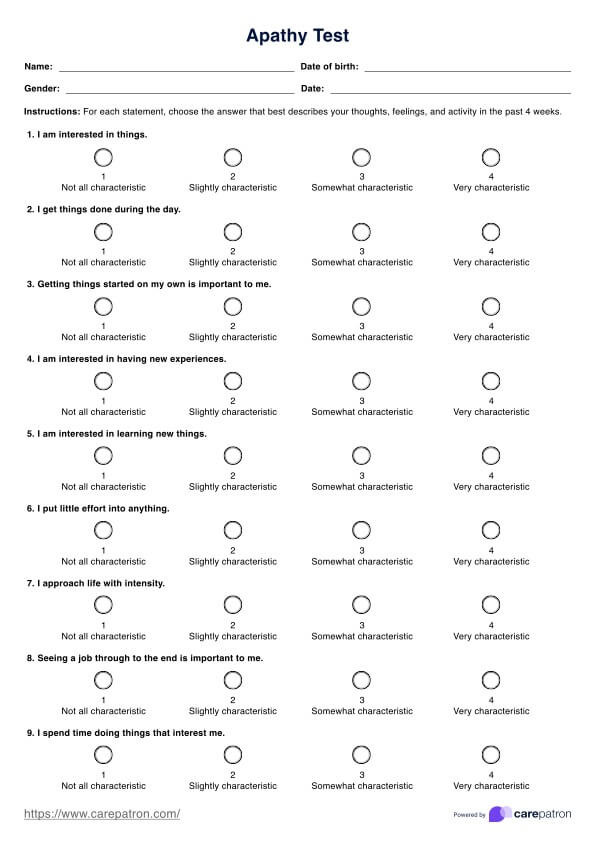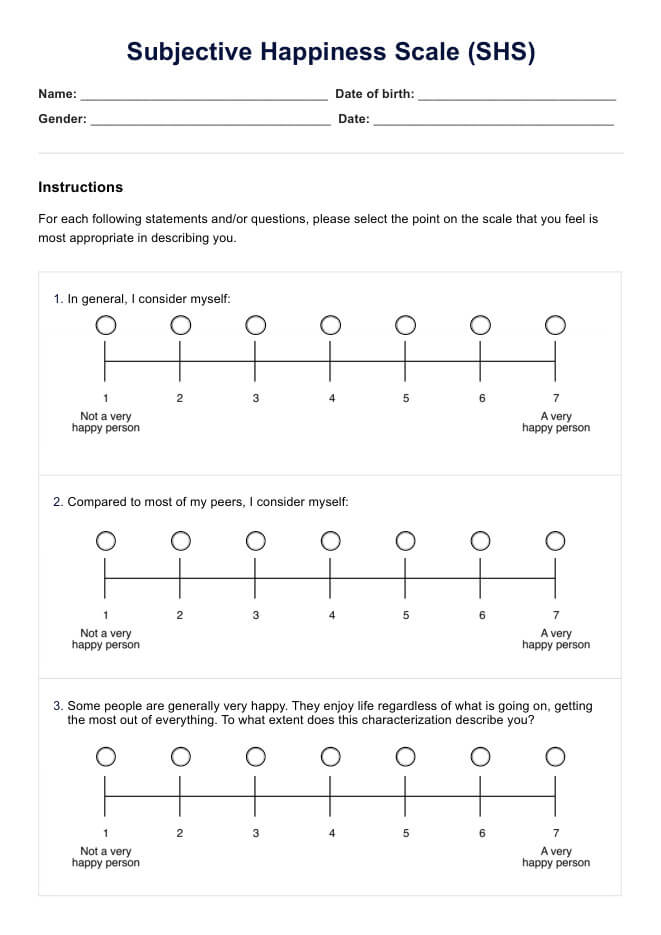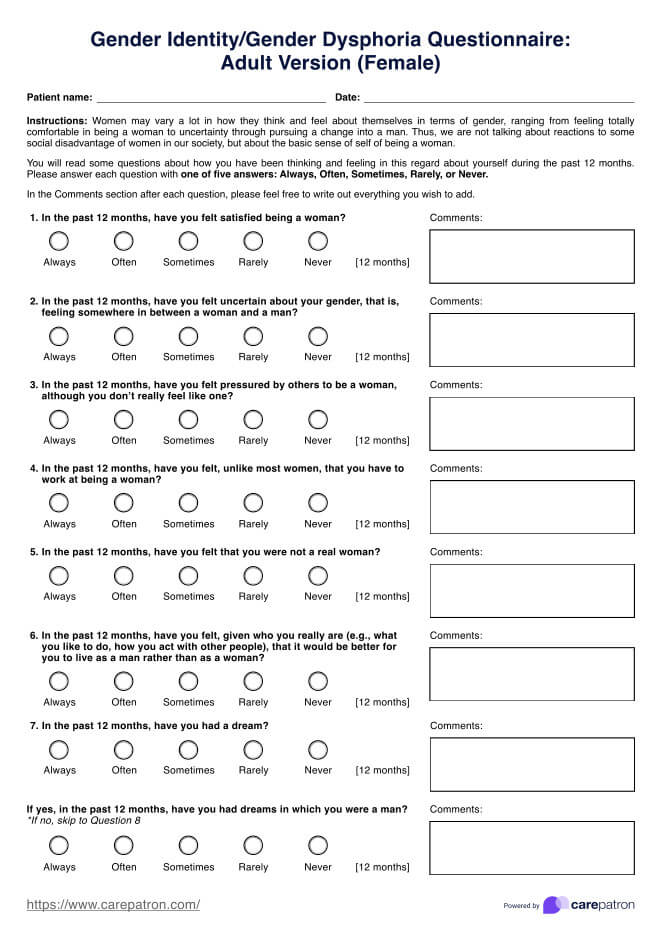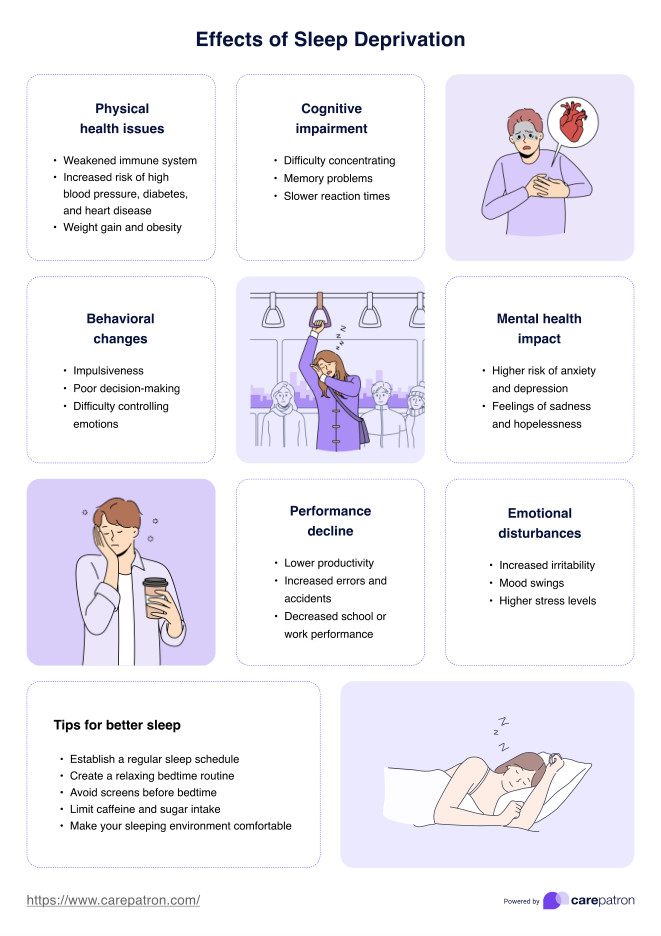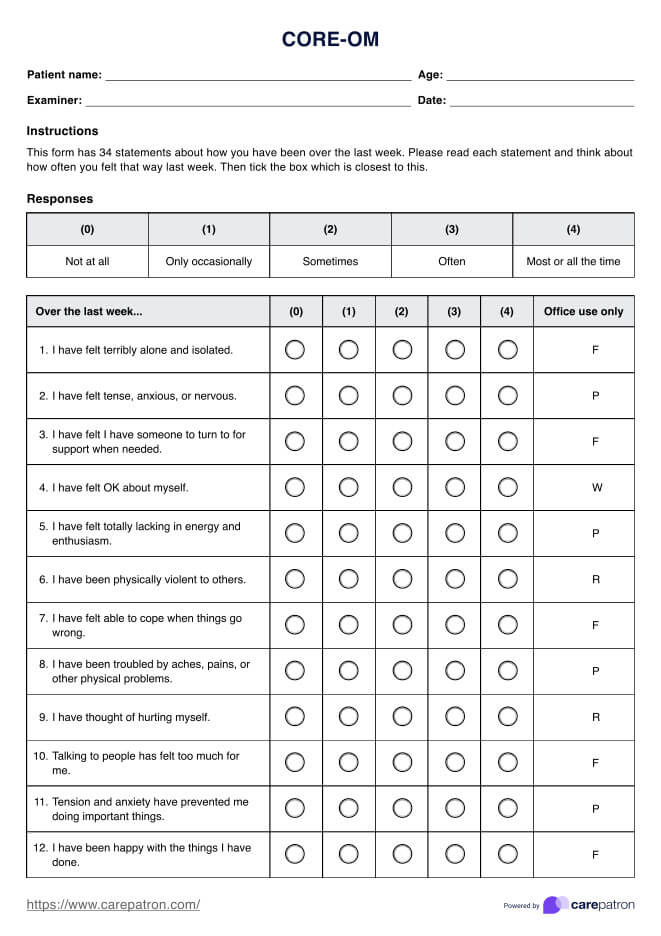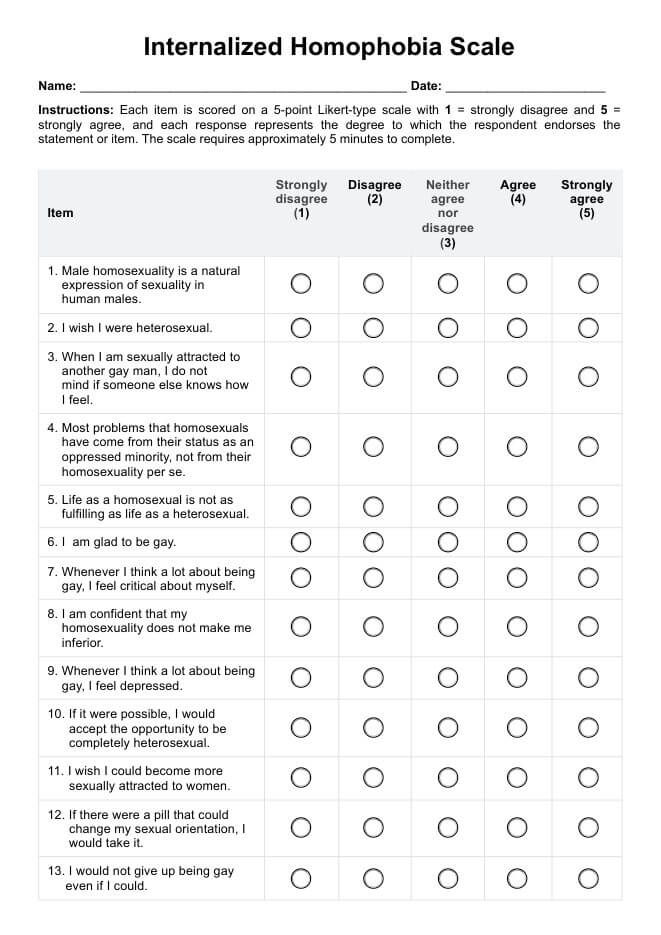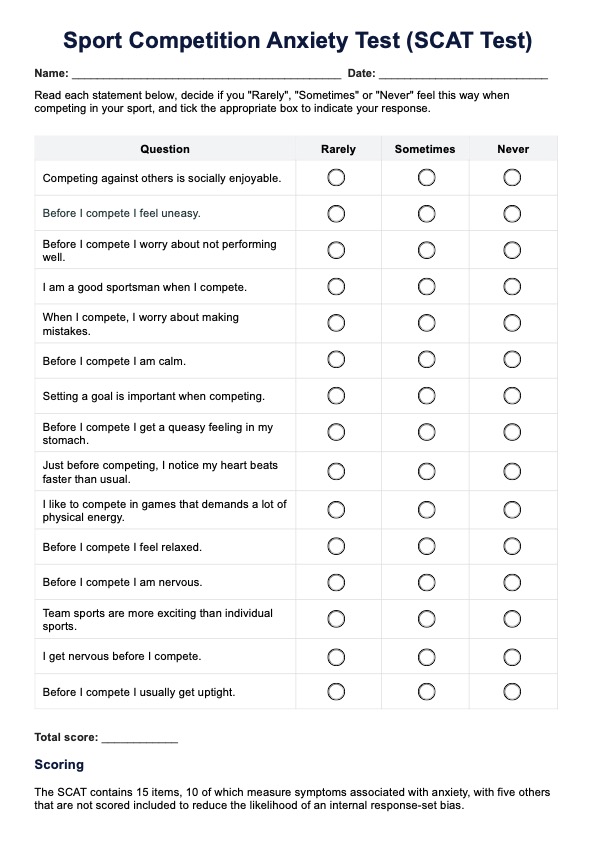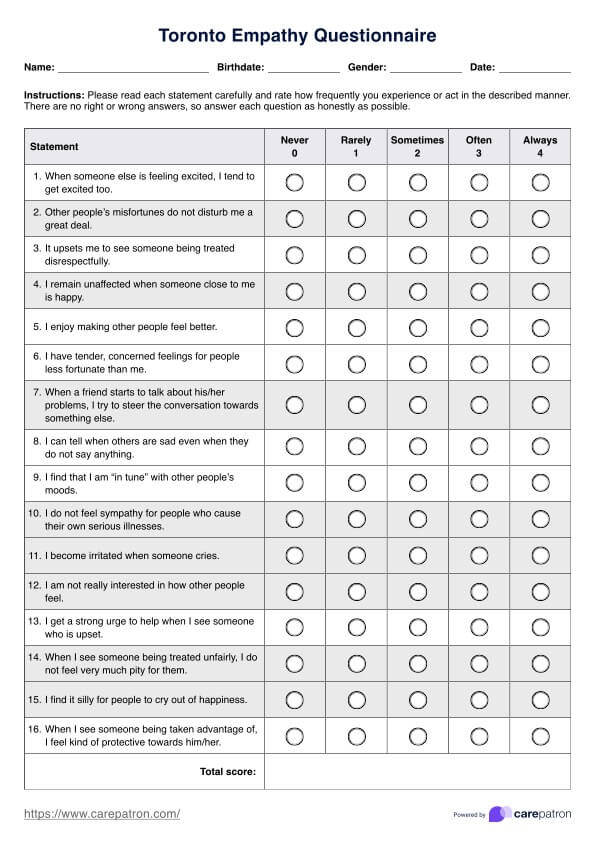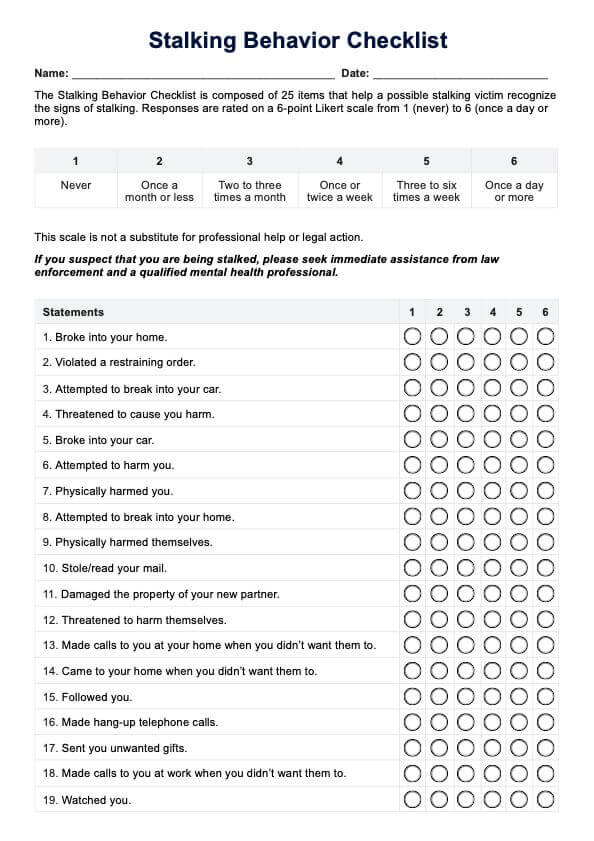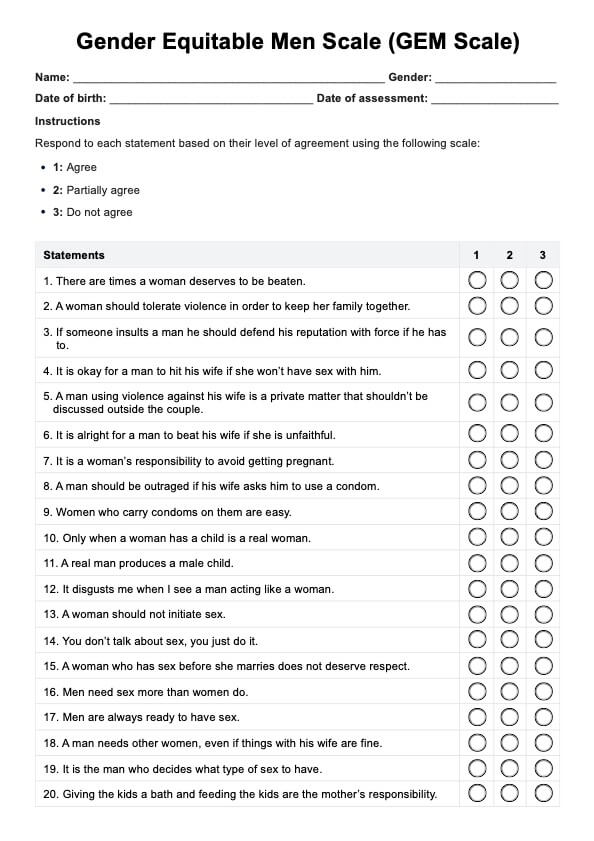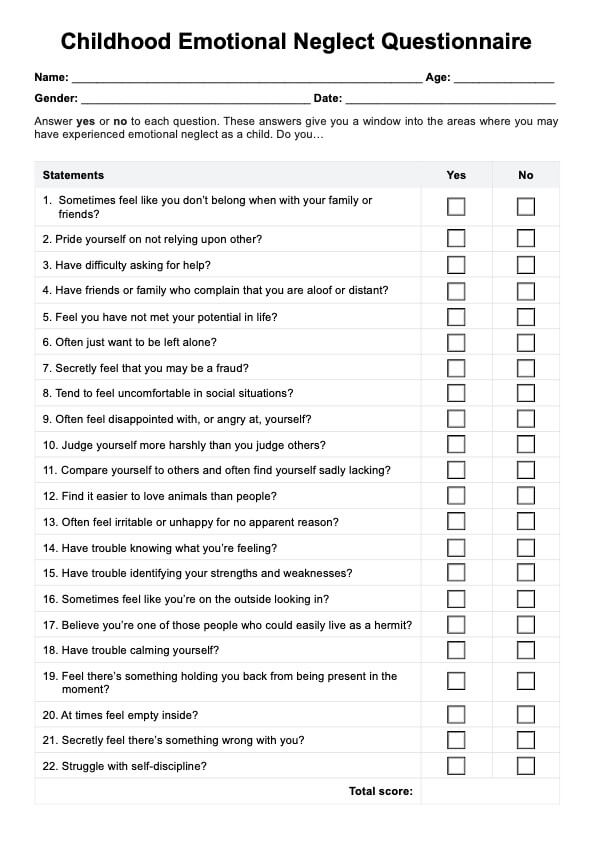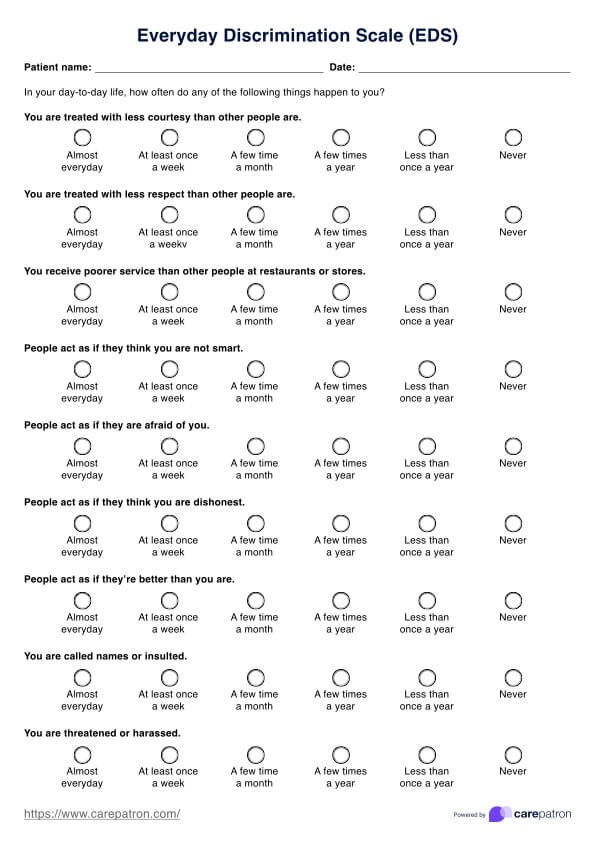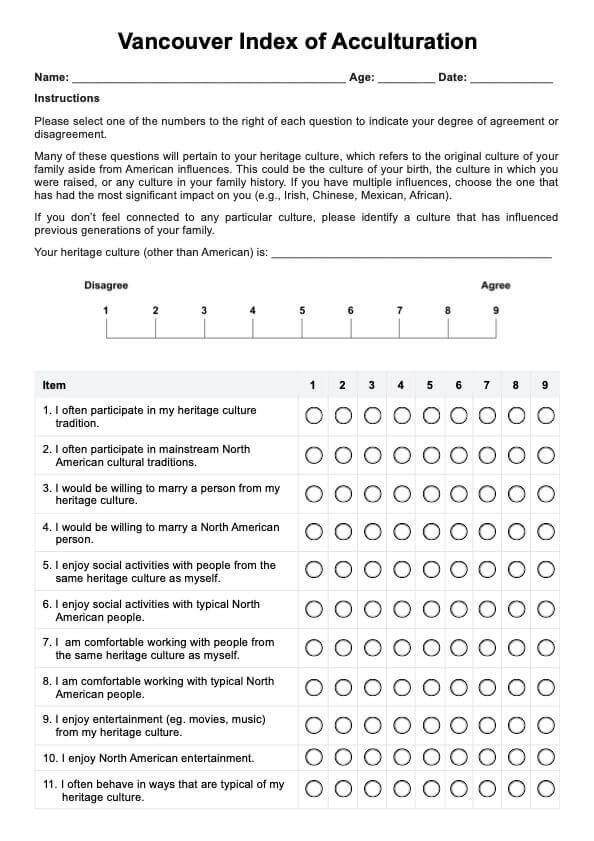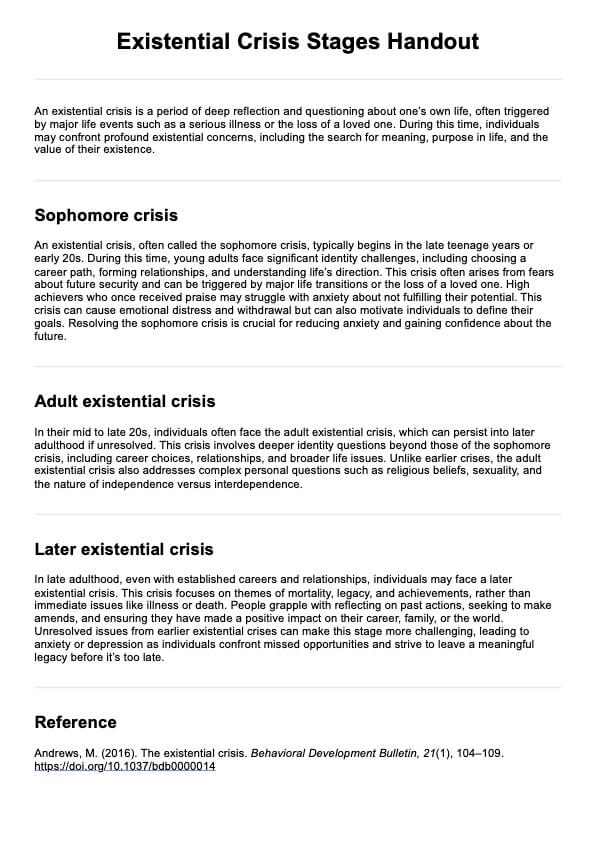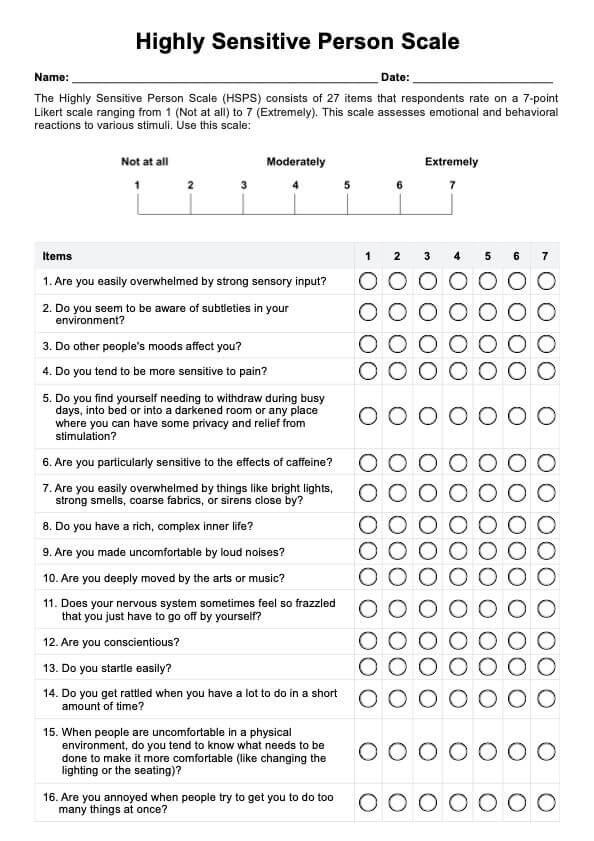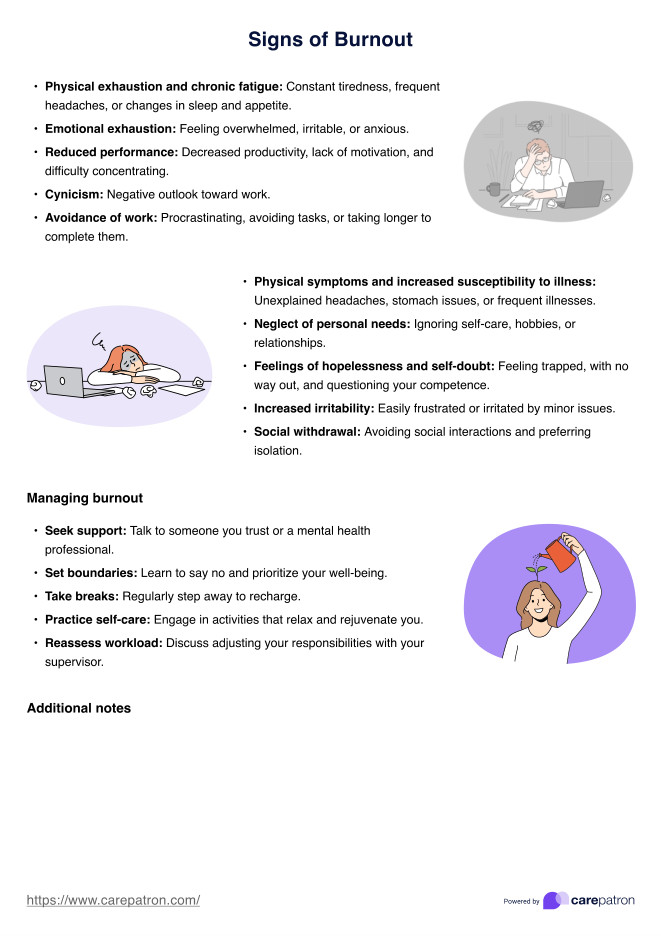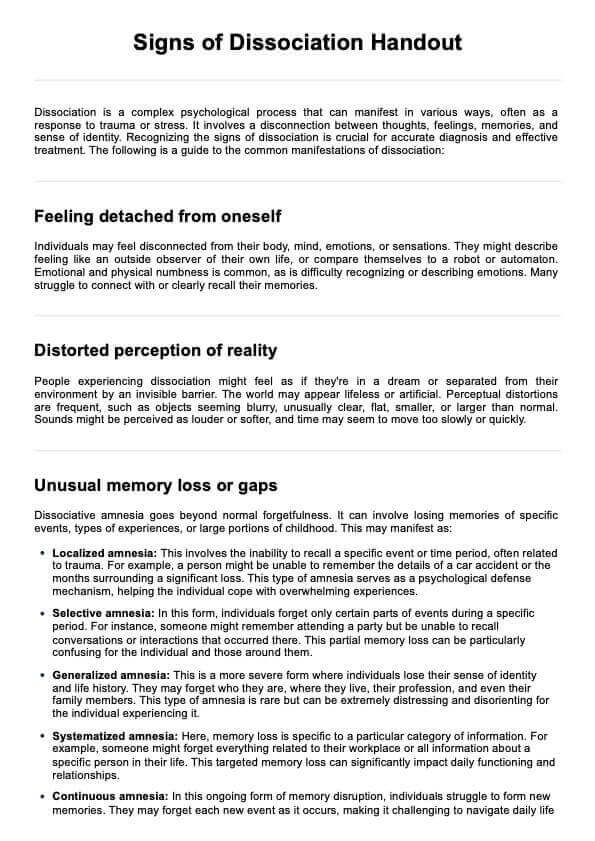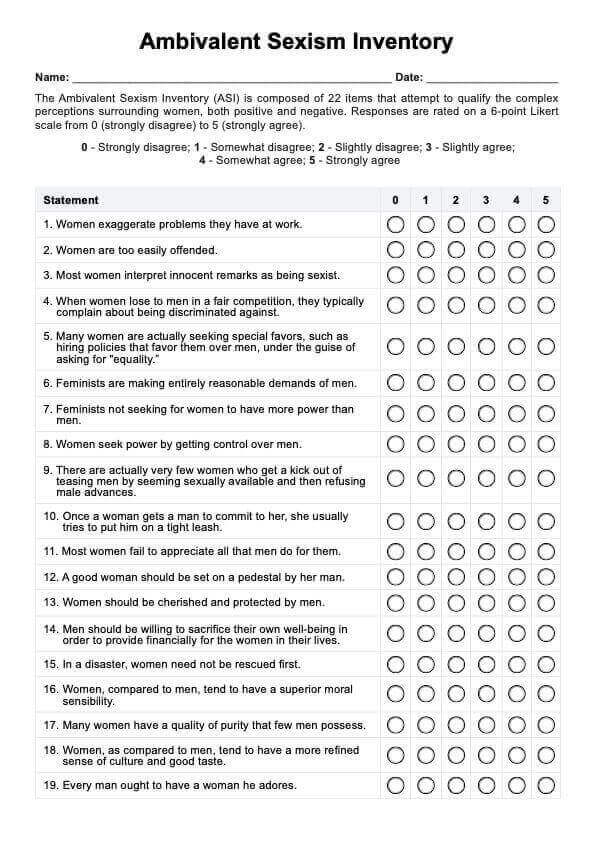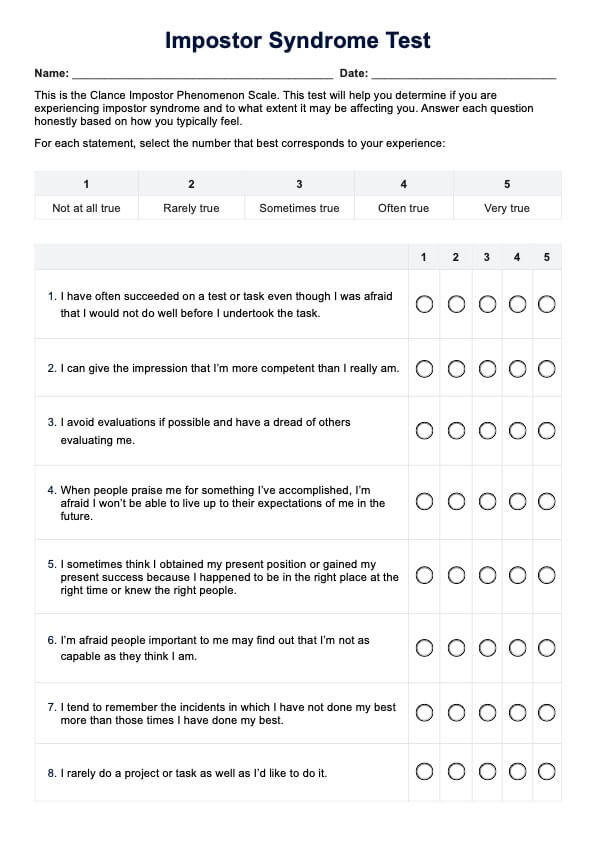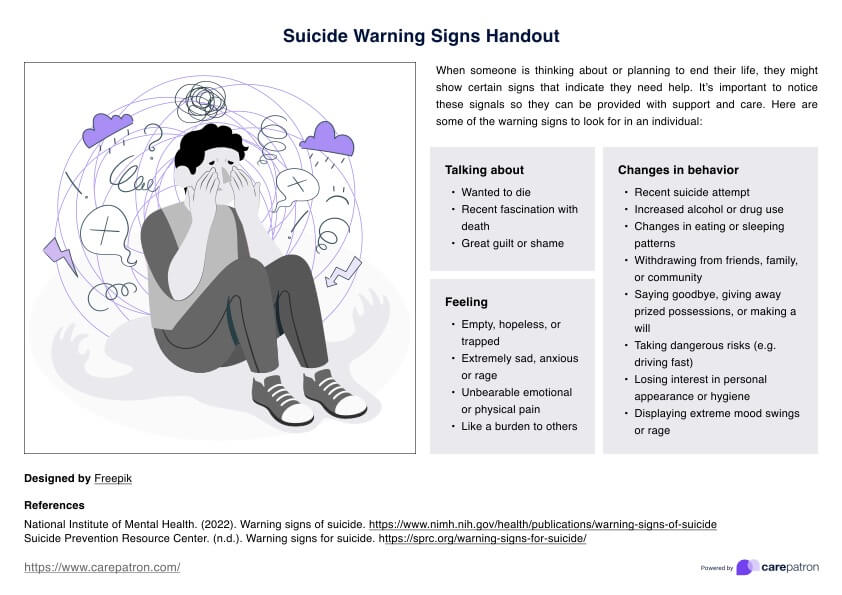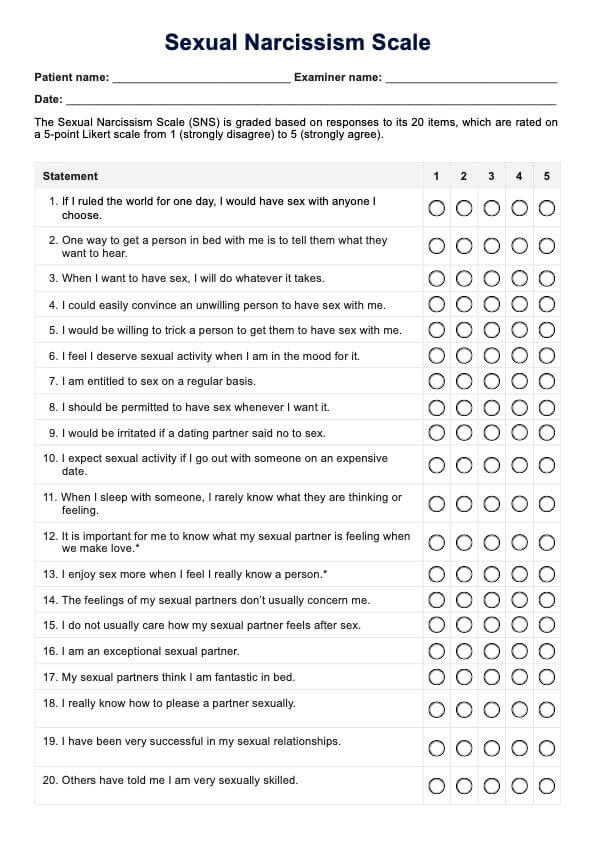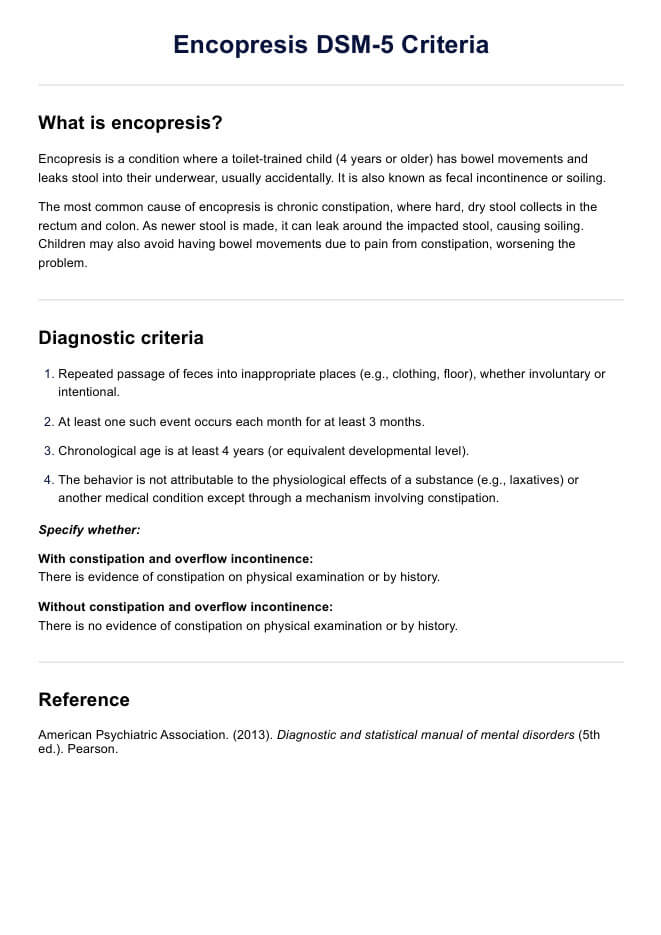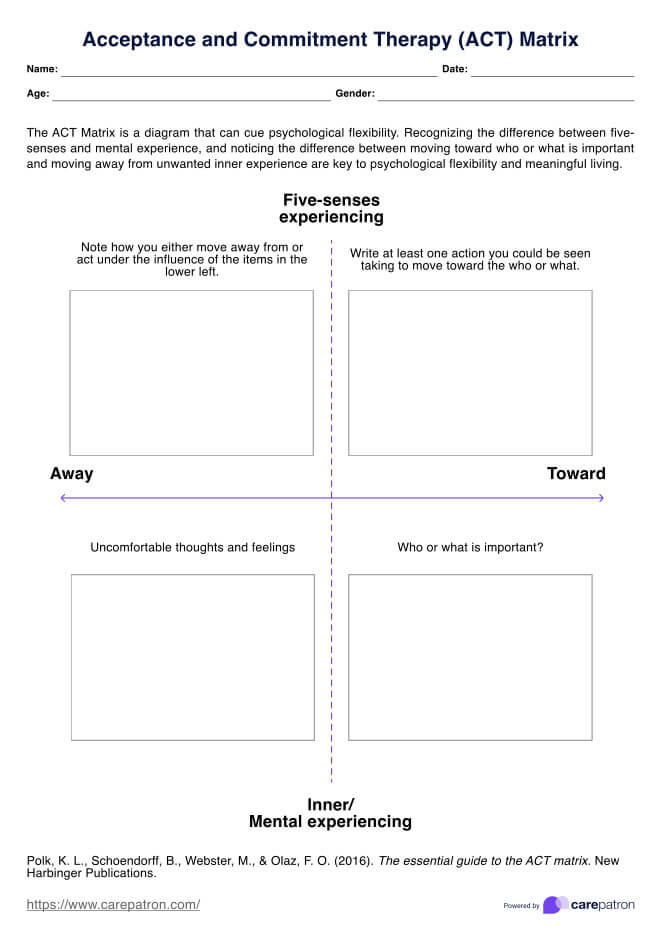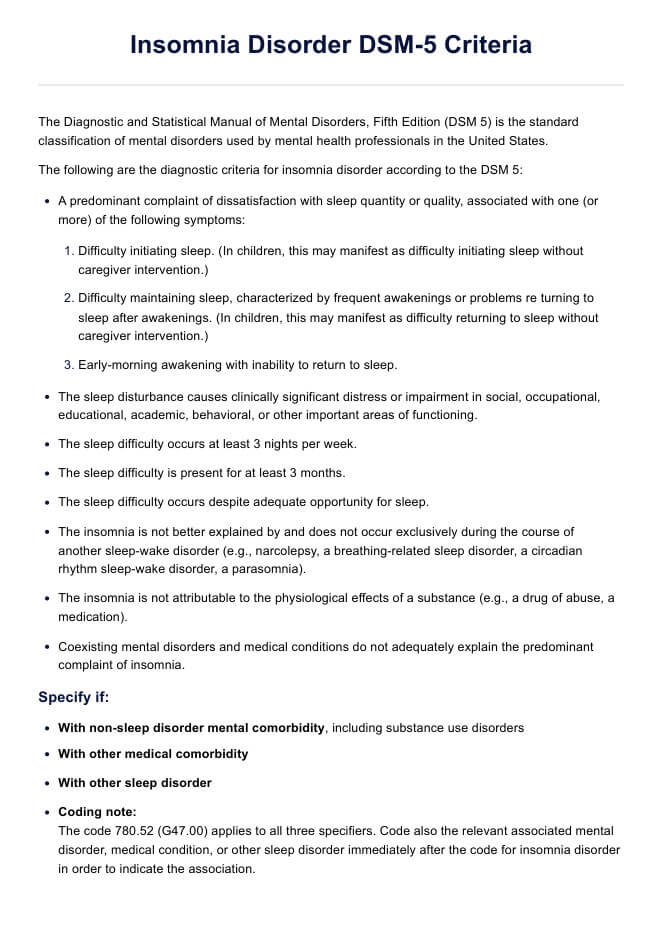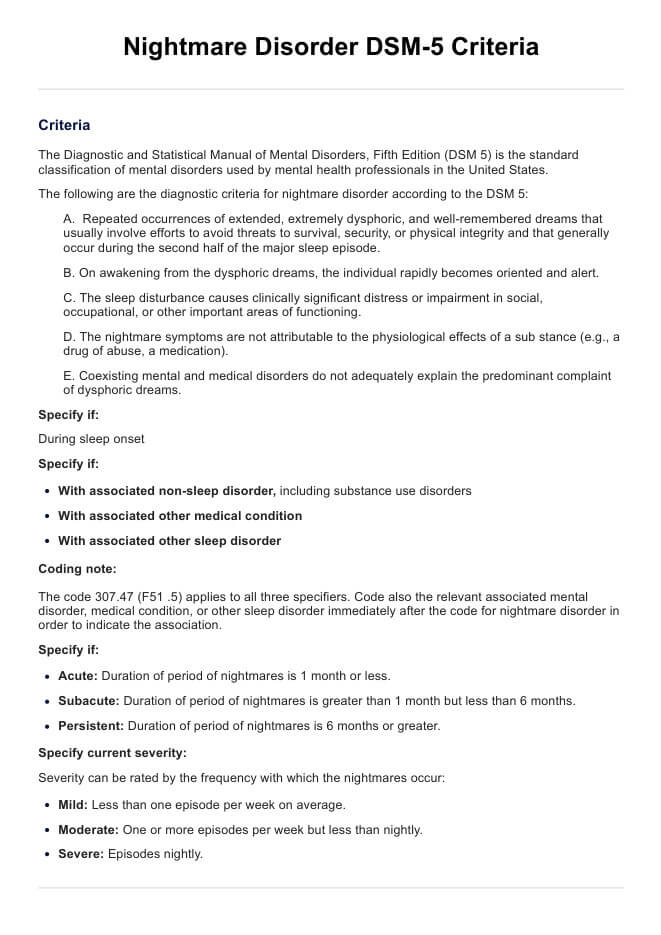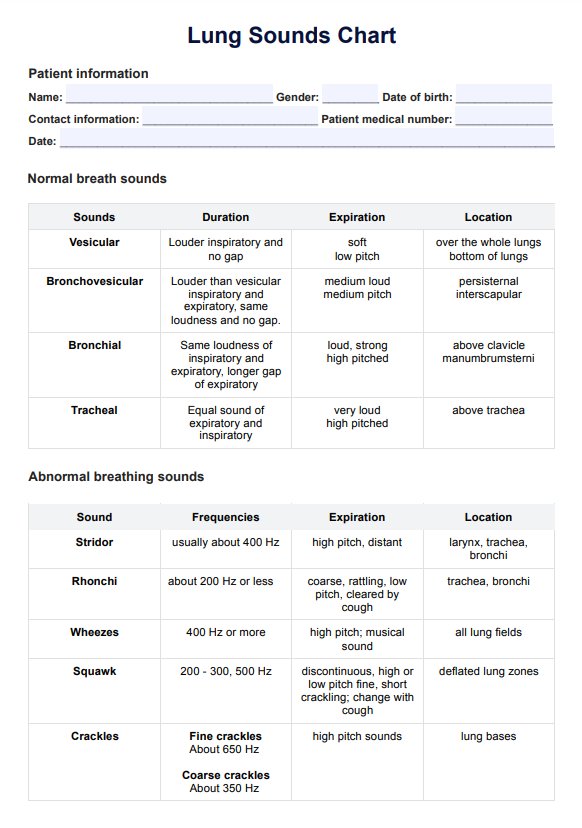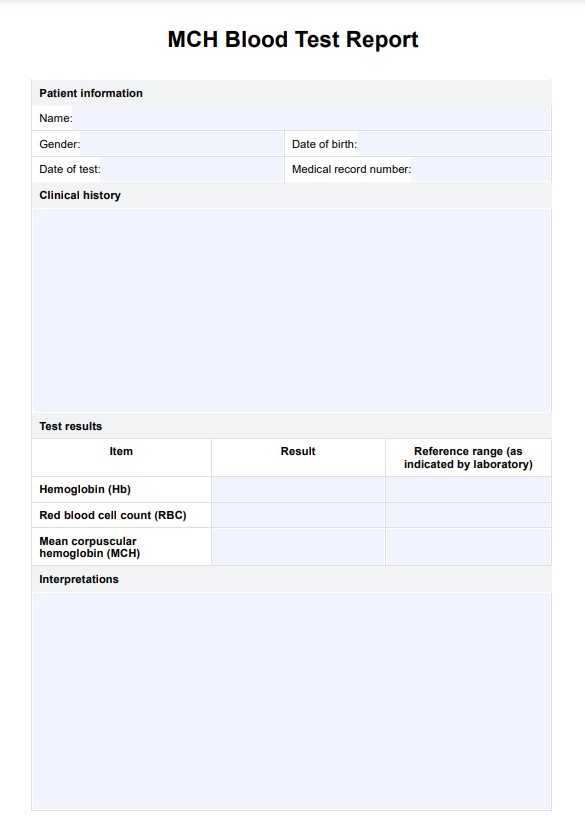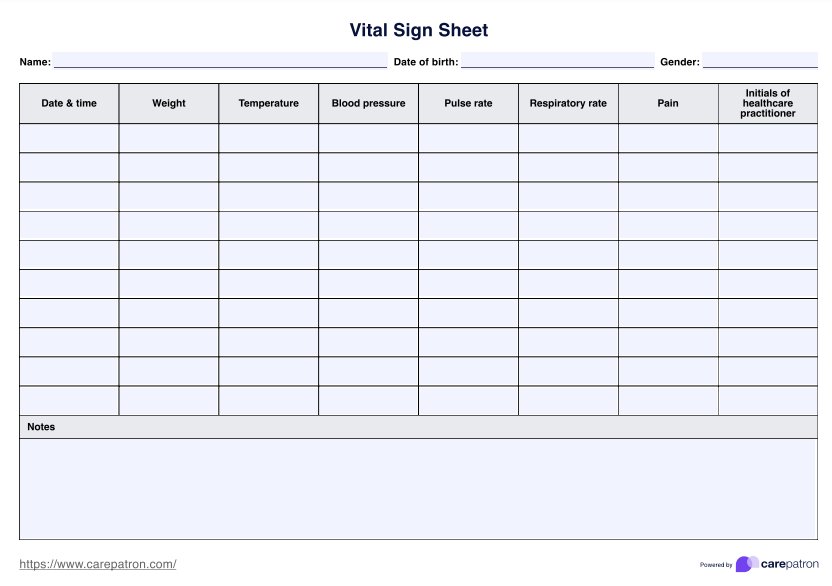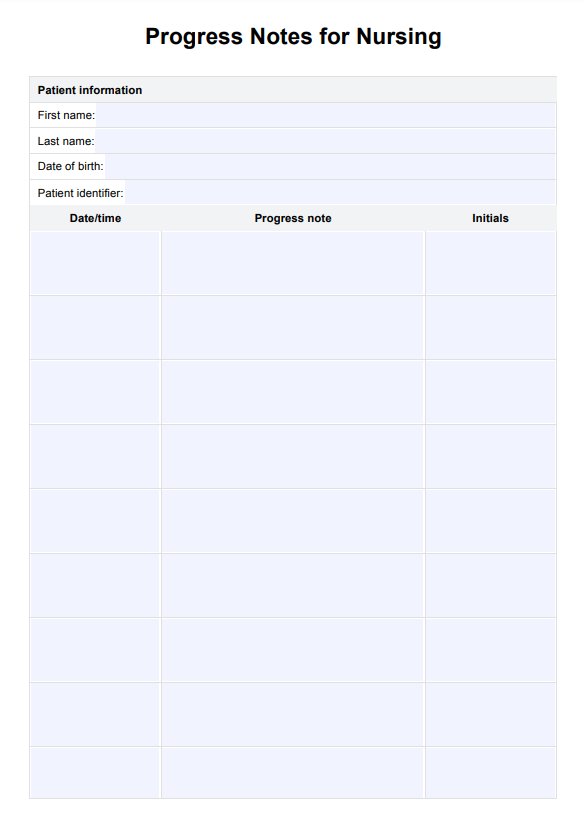Schizophrenia Nursing Care Plan
Discover how a Schizophrenia Nursing Care Plan Template can improve schizophrenia treatment. Explore key benefits for patients and healthcare teams.


What is a Schizophrenia Nursing Care Plan Template?
Nursing Care Plans (NCP) outline ways to assess how well patients respond to their treatment plans. A Schizophrenia Nursing Care Plan Template is a structured document or framework used in mental health nursing to outline individualized care and interventions for patients diagnosed with schizophrenia. It serves as a guide to ensure comprehensive and effective care delivery tailored to each patient's needs.
Schizophrenia is described in the Diagnostic and Statistical Manual of Mental Disorders, Fifth Edition (DSM-5) as a psychological disorder that affects and alters a person's thinking patterns, perception of information, emotional responses, and behavior. The disorder has various types, each with its own distinct clinical features.
The symptoms of schizophrenia are labeled under two categories: positive symptoms and negative symptoms. Positive psychotic symptoms add to reality and encompass experiences like hallucinations or delusions. On the other hand, negative symptoms involve a decline or absence of abilities, such as reduced motivation, loss of interest, poor hygiene, and difficulties in concentration.
This nursing care plan for schizophrenia PDF can be a helpful tool in the assessment and intervention planning for schizophrenia spectrum and other related mental health disorders.
Schizophrenia Nursing Care Plan Template
Schizophrenia Nursing Care Plan Example
How does it work?
The following is a step-by-step guide for practitioners on how to use the nursing care plan for schizophrenia template in their practice:
Step 1: Document patient information and medical history
Begin by filling in the patient's basic information, including name, age, gender, and date of birth. Then, document the patient's relevant medical history in the provided space. This sets the foundation for a personalized care plan and ensures all team members have access to crucial background information.
Step 2: Conduct an assessment
Conduct a thorough assessment of the patient's condition. Record subjective data (patient's reported symptoms and experiences) and objective data (observable signs and test results) in the designated fields. A mental status examination is commonly conducted during this step. A comprehensive assessment helps identify the patient's specific needs and challenges related to their schizophrenia diagnosis.
Step 3: Schizophrenia nursing diagnosis, goals, and interventions
Based on the assessment, formulate appropriate nursing diagnoses. Then, set both long-term and short-term goals for the patient's care. Develop specific nursing interventions to address each diagnosis and work towards the established goals. Include a rationale for each intervention to ensure evidence-based practice in the schizophrenia care plan.
Step 4: Evaluation and documentation
Regularly evaluate the effectiveness of the interventions and the patient's progress toward the set goals. Document these evaluations in the provided space. Use the additional notes section to record any important observations or changes in the patient's condition. Finally, complete the nurse's information section for accountability and continuity of care.
When would you use this template?
A Schizophrenia Nursing Care Plan Template is used in various scenarios and stages of care for individuals diagnosed with this mental illness. Here are some scenarios where the implementation of a care plan is crucial:
Upon diagnosis
Upon coming up with a nursing diagnosis for schizophrenia, healthcare professionals create a care plan to initiate appropriate interventions and support tailored to the individual's needs.
Inpatient or acute care
During inpatient treatment in a behavioral health unit or acute care setting, this schizophrenia NCP helps guide the provision of comprehensive care, including medication management, monitoring, and interventions to manage symptoms.
Transition from inpatient to outpatient care
A care plan is crucial when transitioning patients from inpatient to outpatient care settings. It helps ensure continuity of care, follow-up appointments, and ongoing support.
Crisis intervention and prevention
In situations where patients experience crises or exacerbations of symptoms, a care plan guides healthcare providers in crisis intervention strategies to ensure patient safety and stabilization.
Coordinating multidisciplinary care
Schizophrenia care often involves multiple healthcare providers and specialists. A nursing care plan facilitates coordination among various healthcare professionals to ensure a holistic approach to care.
Family and caregiver education
Care plans include provisions for educating family members and caregivers on schizophrenia, its management, and ways to support the individual, fostering a supportive environment.
A Schizophrenia Nursing Care Plan Template is instrumental at various stages of care, from initial diagnosis to long-term management, crisis intervention, and coordination of care among different healthcare providers. Its purpose is to provide personalized, comprehensive and coordinated care to individuals living with schizophrenia.
Benefits of using a schizophrenia nursing care plan
Implementing a structured nursing care plan for patients with schizophrenia offers several advantages for both healthcare providers and patients.
Comprehensive assessment and intervention planning
A well-designed schizophrenia nursing care plan enables a thorough assessment of the patient's condition, including positive and negative symptoms, cognitive deficits, and social functioning. This comprehensive approach allows for the development of tailored interventions that address each patient's unique needs, including strategies for managing disturbed sensory perception and impaired social interaction.
Enhanced medication management
The care plan provides a structured framework for monitoring and improving medication adherence, a critical factor in managing schizophrenia. It allows for systematic tracking of antipsychotic medications, their effects, and any side effects, enabling timely adjustments to optimize treatment efficacy.
Promotion of therapeutic relationships
The care plan helps foster trusting relationships between patients and mental health professionals by outlining specific therapeutic communication and engagement strategies. This therapeutic relationship is fundamental to effective psychiatric mental health nursing and can significantly impact treatment outcomes.
Integration of psychosocial interventions
The care plan facilitates the incorporation of psychosocial interventions that patients may need, such as social skills training and cognitive behavioral therapy. These interventions can help patients develop coping strategies for managing symptoms and improving their overall functioning.
Family involvement and education
A comprehensive care plan provides a framework for involving family members in treatment. It outlines strategies for family education about schizophrenia, its management, and ways to support their loved ones. This involvement can improve outcomes and reduce caregiver burden.
Risk assessment and management
The care plan allows for regular assessment and documentation of potential risks, including suicidal ideation. The healthcare team can identify environmental factors that can increase risk and implement appropriate safety measures and interventions.
Commonly asked questions
To create a comprehensive nursing care plan for schizophrenia, simply create a customized plan from the scaffolding provided by Carepatron and cater to the patient's needs through the key aspects of assessment, diagnosis, planning, intervention, and evaluation.
These valuable plan templates can be used at any point of the treatment journey for a patient with schizophrenia to track, monitor, and plan all interventions both by healthcare professionals and the patient themselves.
Schizophrenia nursing care plan templates are used to plan efficient and confident care delivery. They are designed to be customized and meet the individual patient's needs.


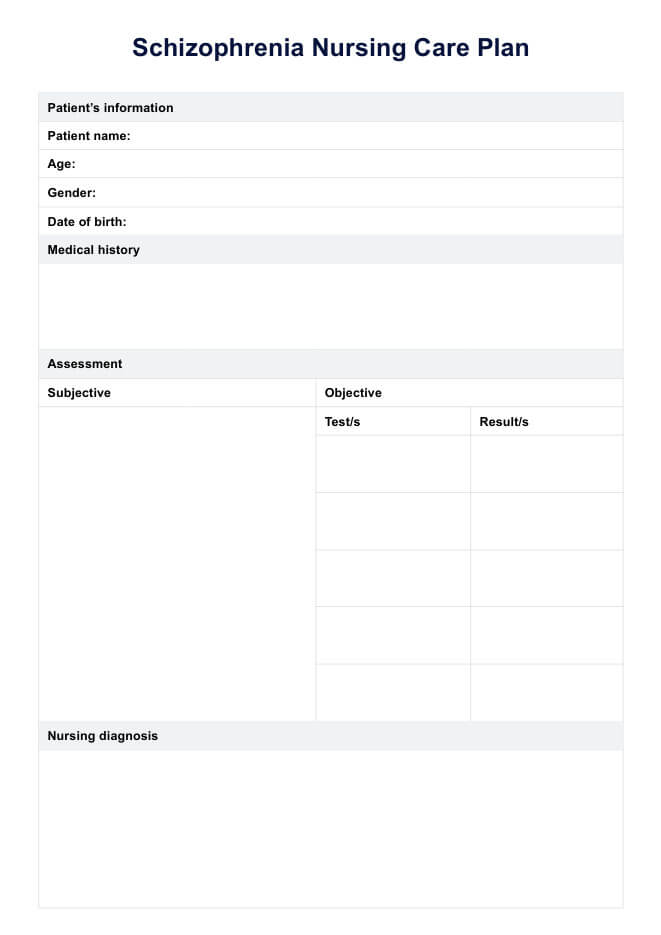
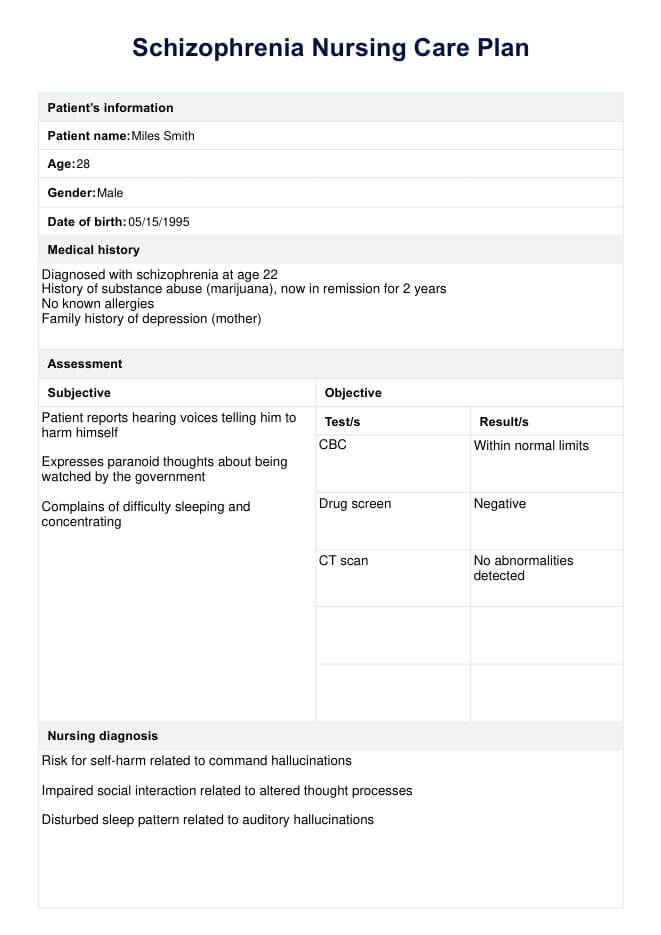









-template.jpg)















































